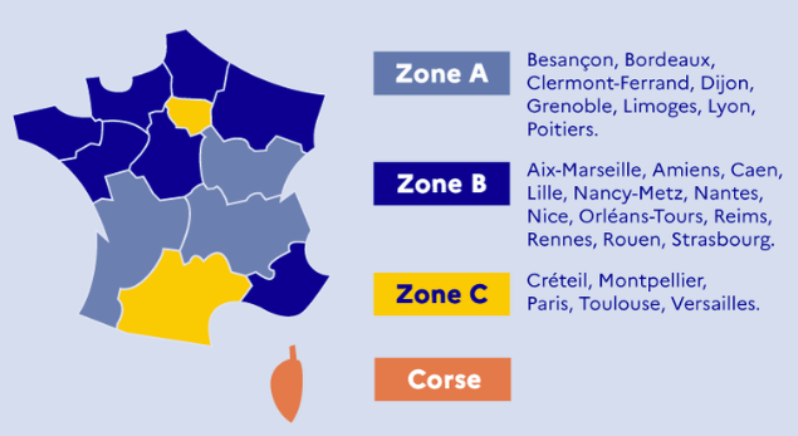Learning the vocabulary for family members in French is an essential step for anyone planning to live and study in France. Not only will it help you in everyday conversations, but it will also allow you to connect more deeply with the culture and people around you.
This guide will provide you with the key terms and phrases you need to know, making it easier to talk about your family and understand others when they do the same. Let’s dive into the world of French family vocabulary!
Immediate Family Members
Let’s start with the most common family members. These are the terms you’ll use to talk about your immediate family.
- Mother: Mère
- Father: Père
- Parents: Parents
- Brother: Frère
- Sister: Sœur
- Son: Fils
- Daughter: Fille
- Child/Children: Enfant/Enfants

Extended Family Members
Next, let’s look at the extended family. These terms will come in handy when discussing aunts, uncles, cousins, and grandparents.
- Grandmother: Grand-mère
- Grandfather: Grand-père
- Grandparents: Grands-parents
- Uncle: Oncle
- Aunt: Tante
- Cousin (male): Cousin
- Cousin (female): Cousine
- Nephew: Neveu
- Niece: Nièce
In-Laws and Step-Family Members
When discussing family members related by marriage or step-relations, these terms will be useful:
- Father-in-law: Beau-père
- Mother-in-law: Belle-mère
- Brother-in-law: Beau-frère
- Sister-in-law: Belle-sœur
- Stepfather: Beau-père
- Stepmother: Belle-mère
- Stepson: Beau-fils
- Stepdaughter: Belle-fille
Some Phrases and Context
To help you practice and get used to these terms, here are some common phrases and sentences related to family:
- My family is large/small: Ma famille est grande/petite.
- I have two brothers and one sister: J’ai deux frères et une sœur.
- Do you have any siblings?: As-tu des frères et sœurs?
- He is my cousin: Il est mon cousin.
- She is my niece: Elle est ma nièce.
Cultural Tips
Understanding the vocabulary is one thing, but using it in the right context is equally important. Here are some cultural tips:
- Politeness and Titles: In France, it’s common to use formal titles like “Monsieur” or “Madame” when addressing elders or in-laws, especially at the beginning of a relationship.
- Family Gatherings: Family gatherings are significant in French culture. Learning these terms will help you navigate conversations during holidays and special events.
- Expressing Affection: French people often use terms of endearment like “mon cher” (my dear) or “ma chérie” (my darling) within families. Familiarize yourself with these expressions to understand the warmth in family interactions. Here are some of the expressions you will hear the most in France:
- Mon amour (My love)
- Ma chérie / Mon chéri (My darling)
- Ma puce (My flea – an affectionate term similar to “sweetie”)
- Mon cœur (My heart)
- Mon trésor (My treasure)
- Mon ange (My angel)

Practice Makes Perfect
Mastering the vocabulary for family members in French will significantly enhance your ability to communicate and connect with others while living and studying in France. To master this vocabulary, practice is key. Try to use these words in your daily conversations, write them down, and make flashcards if necessary. Engaging with native speakers or joining a language course can also be incredibly beneficial. Remember, the more you use these terms, the more natural they will become.
Bonne chance (good luck) in your French learning journey, and enjoy building those meaningful family connections in France!











